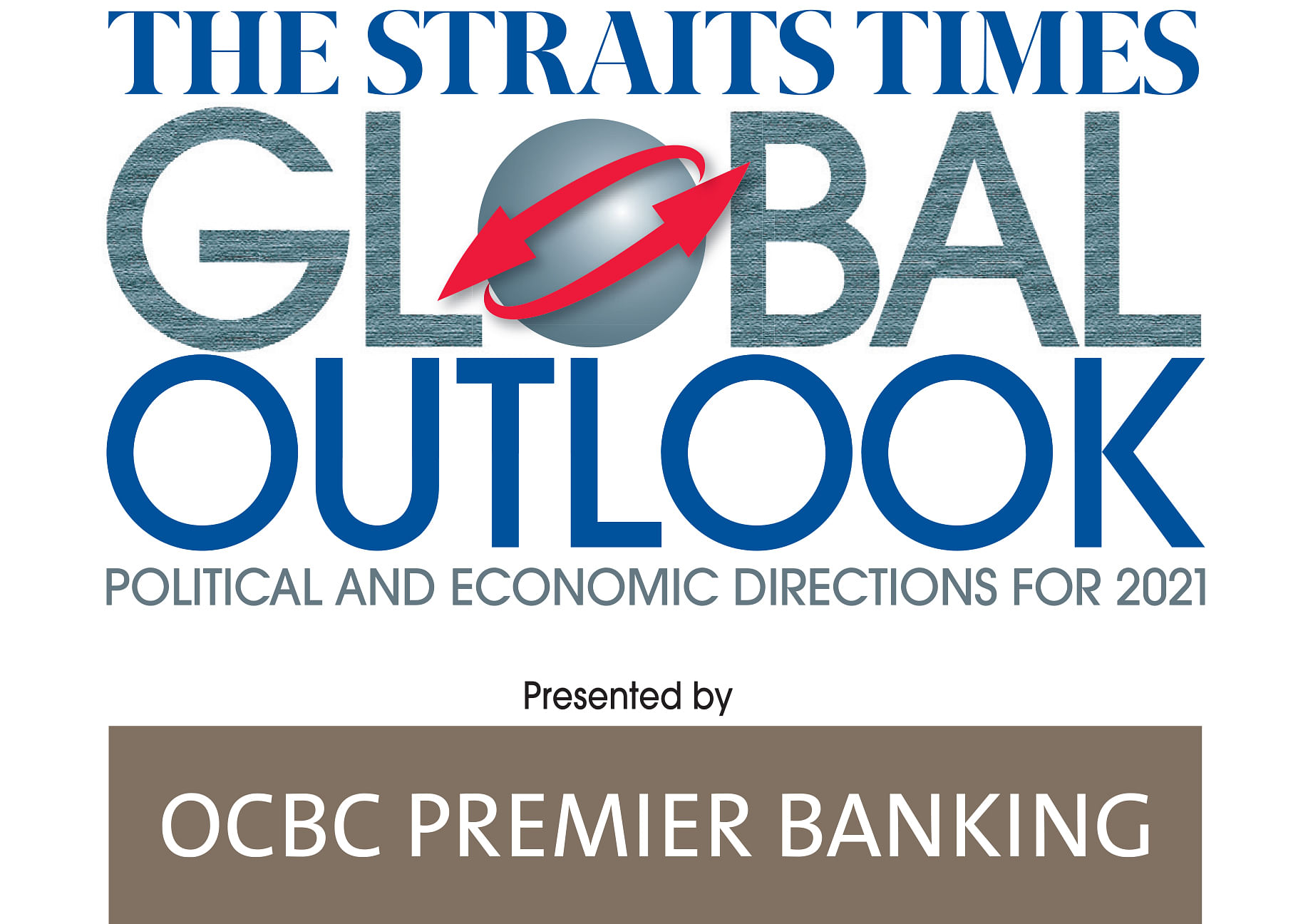SINGAPORE - Asia must guard against a rising tide of protectionism as countries rebuild their economies amid greater global uncertainty, with the coronavirus pandemic still raging, experts say.
In particular, Asean nations must stay united and committed to their core principles as they tread the fine line of balancing relations with China and the United States - the two major powers whose intense rivalry has cast a deep shadow over the region.
"Asia and Asean are at a critical juncture," said Mr Nirmal Ghosh, moderator of the Asian Insider panel discussion at The Straits Times Global Outlook Forum on Monday (Jan 11). "There is a change of guard imminent in Washington, DC and the Covid-19 pandemic is still with us. Adaptation and economic fundamentals are very much on the top of the minds of many countries in the region."
The panellists who shared their views on the way forward for Asia and Asean this year were Ms Selena Ling, OCBC Bank's head of treasury research and strategy; Caixin Media deputy managing editor Huang Shan, ST associate editor Ravi Velloor; and ST China bureau chief Tan Dawn Wei. Mr Ghosh is also ST's US bureau chief.
Room for optimism
"The after-effects of the Covid-19 pandemic may linger on for some time, but a new president in the US and the discovery of vaccines for Covid-19 could be inflection points, and herald better prospects for Asia and South-east Asia in the coming years," Mr Ching Wei Hong, deputy president of OCBC Bank, said at the start of the forum organised by ST in partnership with presenting sponsor OCBC Premier Banking.
There is certainly room for optimism in 2021, said panellist Ms Ling, with policymakers around the world having thrown in all resources and largely cooperated to mitigate the devastating economic fallout from the pandemic.
Silver linings include Covid-19 vaccines having been developed and rolled out earlier than expected, unprecedented policy support that is likely to be sustained for some time, and China being already on the road to recovery, which provides a tremendous source of stability and growth demand for the region.
Ms Ling warned, however, that the mood in 2021 is likely to shift away from the intense global collaboration seen amid the pandemic last year as economies rebuild.
"With policymakers very focused on trying to boost growth recovery story this year, will protectionism come back again?" she asked. "If you look inwards, trying to protect your own industries and business models, will it come at the expense of your neighbours? That's something we still have to be watchful for."
Other idiosyncratic tensions also contribute to the economic risks on the Asian landscape, including Malaysia's unstable political situation and Indonesia's pressing need to ensure proper execution of policies such as its omnibus law to create jobs and boost investment. Singapore's small and medium-size enterprises, elderly professionals, managers, executives and technicians, and lowly skilled workers also face a rapidly narrowing window for adjusting to digital disruption that has been sped up by the pandemic, she added.
Protectionism may indeed become a mainstream sentiment, Caixin Media's Mr Huang opined. And with countries striving to make their supply chains more self-sufficient in an increasingly fragmented world, "China will try to connect all of that… to build a coalition of their own... to bring together all the stakeholders within the Chinese economic orbit".
Spectre of US-China rivalry
The US-China rivalry will continue to dictate concerns across Asia in 2021, even as the bilateral relationship will not be both countries' top priority this year "as they need to look inwards to get their own houses in order first", Mr Huang said.
One key challenge in dialling down the hostilities, ST's Ms Tan said, is how the US can overcome its distrust of China enough for the two sides work together in a constructive manner.
"For climate change, for example, it would be interesting to see if the two powers can cooperate, or will it yet be another arena for competition," she said.
South-east Asia will be "the next battleground" in the Sino-US rivalry, said Mr Huang, referencing China hand David Shambaugh's recent book, Where Great Powers Meet.
"The extent to which Asean can play a central role in this century really depends on the coherence of its internal political and economic dynamics," he said. "If Asean is an easy target for the 'divide and rule' strategy, it can be easily penetrated and split."
In the same vein, ST's Mr Velloor said: "If there is discord within Asean, it loses its relevance to both (the US and China)... For Asean to stay relevant, it has to show its coherence through a certain commitment to core principles, (such as) an absolute commitment to openness and in insisting that countries play by the rules."
Asean stands to gain - and lose
Mr Velloor highlighted a positive perspective from Mr Shambaugh's book, which described South-east Asia as where China and the US meet, rather than where they clash. Countries, as many big global firms already have, need to learn to live with the two powers, he said.
"On the whole, Asean does benefit from the spills from this geopolitical contest," he said, pointing to gains such as manufacturing in Vietnam, Malaysia and Thailand, and logistics and digital businesses such as Chinese Internet giant Bytedance expanding in Singapore amid restrictions on its services in the US, India and elsewhere.

"But if things really go south with the big relationship with the US and China, then Asean will be affected because whether we like it or not, we'll be asked to choose sides. That's a fear that cannot be wished away."
As Singapore's Deputy Prime Minister Heng Swee Keat laid out in his keynote address at the forum: "Global cooperation will be shaped by US-China relations. There will be friction. But competition and cooperation can co-exist… The prospects for Asean remain bright, but the region can realise our potential only if we work together to advance our collective interest."


